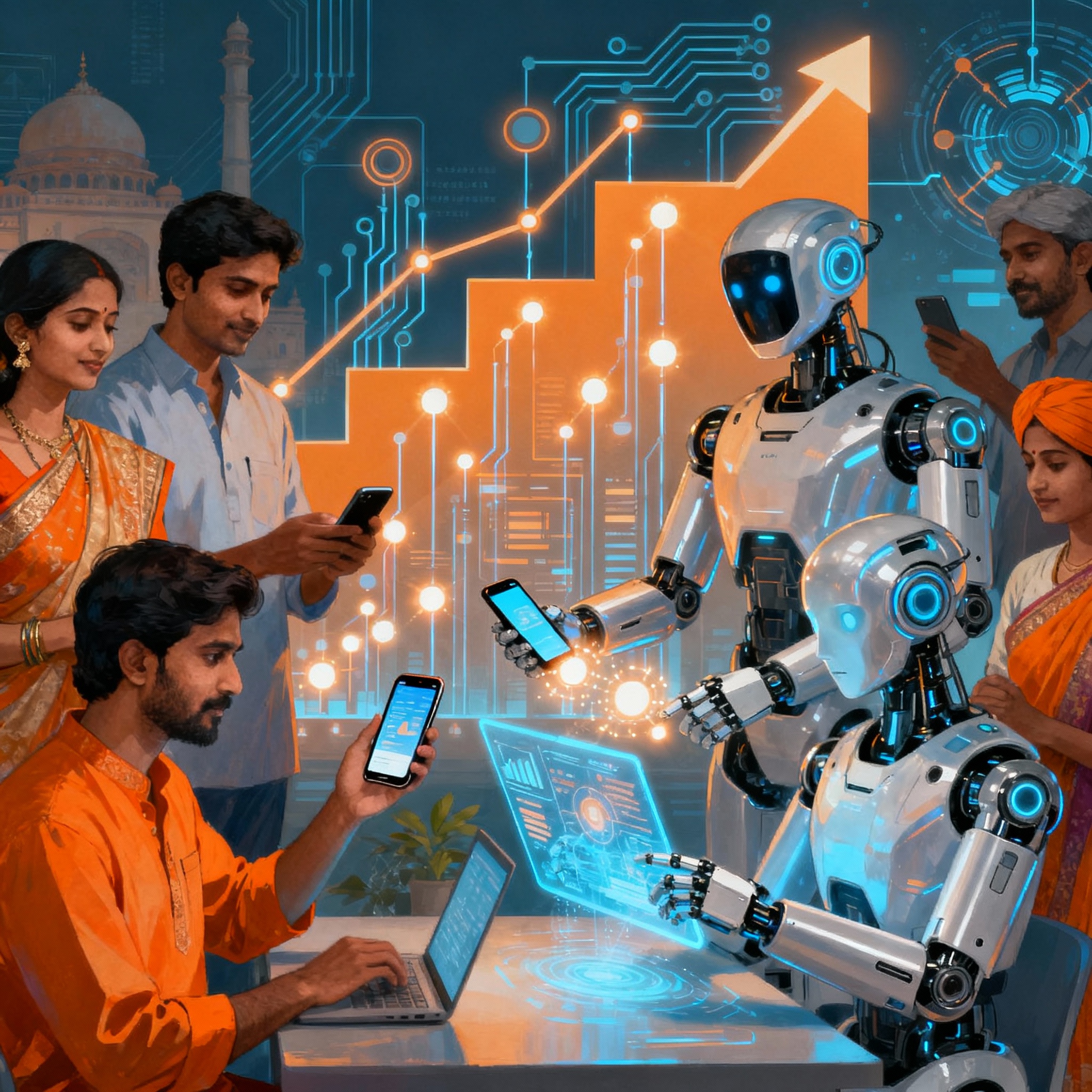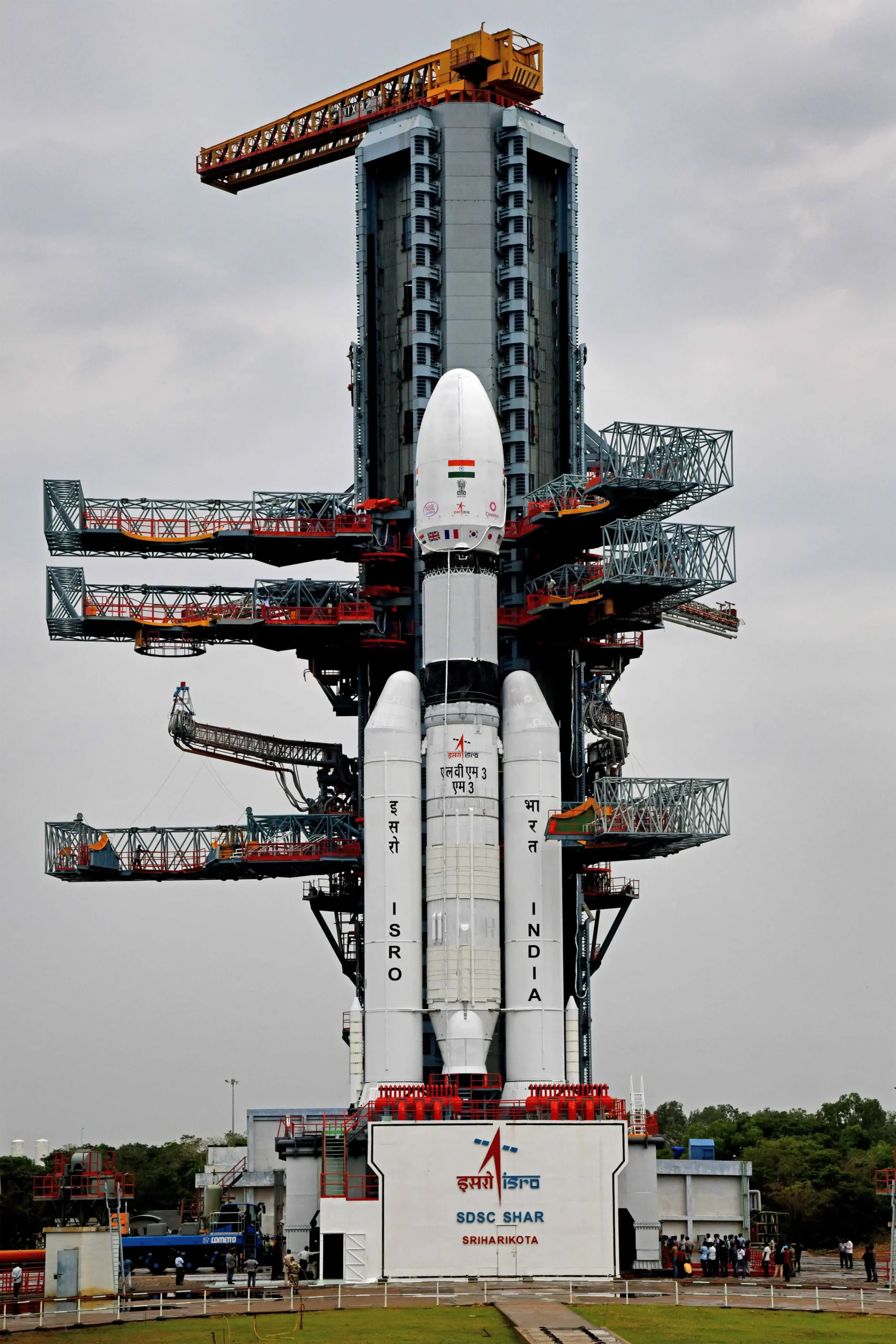AI Revolution 2025: The Rise, Benefits, and Drawbacks of Artificial Intelligence in India

भारत में AI Revolution का Introduction
Artificial Intelligence, या AI Revolution, आज की दुनिया का सबसे बड़ा परिवर्तन लेकर आया है।
2025 में, भारत ने इस तकनीक को अपनाने में एक बड़ा कदम उठाया है।
सरकार के IndiaAI Mission और Viksit Bharat Vision 2047 के तहत, AI को शिक्षा, स्वास्थ्य, कृषि,
और उद्योगों तक पहुँचाया जा रहा है।
According to NITI Aayog’s 2025 report, AI is expected to add up to
$500–600 billion to India’s GDP by 2035 — completely revolutionizing how India works, learns, and innovates.
Benefits of the AI Revolution
1. Productivity Boost: AI tools जैसे predictive analytics और machine learning ने industries को smarter बना दिया है। Manufacturing, finance, और logistics में efficiency में 40% तक की वृद्धि हुई है।
2. Healthcare & Education Transformation: AI diagnostics ने villages में healthcare की accessibility बढ़ाई है, जबकि AI-based learning platforms ने students को personalized learning प्रदान की है।
3. Economic Empowerment: Over 400,000 new jobs have already been created in the AI sector, from data scientists to AI policy specialists — making India a rising hub of ethical innovation.
Drawbacks and Challenges of AI
1. Job Displacement: Automation से repetitive jobs प्रभावित हो रही हैं। Reports suggest कि 2030 तक 30% तक traditional jobs redundant हो सकती हैं।
2. Skill Gap: AI revolution के साथ workforce को reskill करने की urgent need है। Rural और semi-urban क्षेत्रों में digital training की कमी समस्या बन रही है।
3. Ethics and Privacy Risks: Data misuse और surveillance को लेकर नैतिक सवाल उठे हैं — जिससे Responsible AI Governance frameworks की आवश्यकता बढ़ गई है।
The Indian Strategy: Responsible AI Growth
भारत ने “AI for All” के vision के तहत AI को inclusive और transparent बनाने पर ज़ोर दिया है।
IndiaAI Mission के तहत ₹10,300 crore का budget computing power और GPU infrastructure के लिए allocate किया गया है।
Major Indian IT कंपनियाँ जैसे TCS, Infosys, और Tech Mahindra अब local-language आधारित generative AI tools पर काम कर रही हैं।
सरकार का उद्देश्य है कि हर भारतीय को AI का लाभ मिले — चाहे वह farmer हो या startup founder।
Future Outlook for AI in India
AI revolution का future bright और transformative है।
Experts believe कि responsible AI implementation से 2035 तक India’s economy में $1.7 trillion का growth हो सकता है।
In short, AI Revolution ek naye Yug ka aarambh hai —
एक ऐसा युग जहाँ humans और machines मिलकर smart, ethical और inclusive India बनाएंगे।
AI Implementation Challenges & Roadmap for India
While the AI Revolution promises a new era of innovation, implementation in a country as diverse as India brings its own complexities.
Key challenges include data accessibility, cybersecurity, explainability, and lack of skilled workforce [web:70][web:72].
Data quality remains a fundamental issue. Many businesses still rely on fragmented or legacy infrastructure, making integration with AI systems difficult.
The India Dataset Platform proposed under the IndiaAI Mission aims to centralize and streamline high-quality datasets for startups and public research [web:55].
On the governance front, India is making progress through the Digital Personal Data Protection Act (DPDP 2023), which ensures responsible AI deployment, transparency, and bias removal [web:73].
This aligns AI development with privacy-first global standards.
Implementation roadmap laid by the government involves:
- Phase 1 (2025–2026): Strategy building with mission charter and sectoral collaboration.
- Phase 2 (2026–2027): Institutional frameworks for ethics, law, and AI infrastructure.
- Phase 3 (2027–2029): Pilot projects in healthcare, agriculture, and education sectors to test real-world AI solutions.
- Phase 4 (2029 onwards): National-scale deployment with region-specific AI adaptation and long-term workforce mobility [web:55].
The ultimate goal is to ensure that AI benefits every citizen — creating new opportunities, improving living standards, and supporting inclusive digital progress.
As India continues to grow as a data-rich nation, the AI Revolution will not only redefine the economy but also humanity’s relationship with technology itself.



